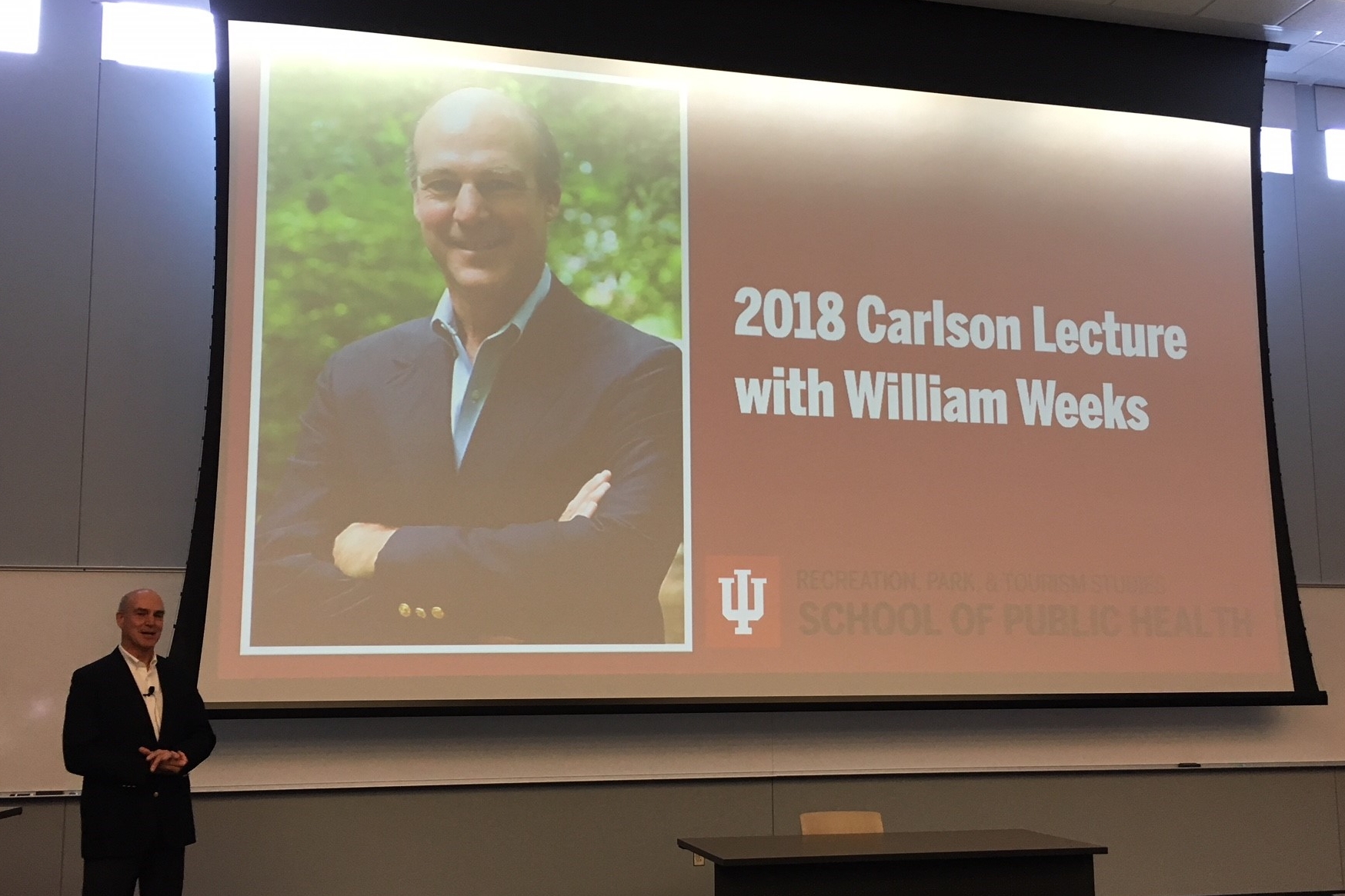Conservation and Common Wealth
On March 2, CLC Director Bill Weeks delivered the Carlson Lecture at Indiana University School of Public Health.
The presentation considered the future of conservation with a focus on the current movement away from biodiversity as conservation’s primary goal.
Weeks argued first that whether the beneficiary of conservation work is meant to be humans, or the species and ecosystems with which we share the earth, continued focus on biodiversity conservation is necessary, both because we have a kinship with all life, and because we do not and will never have sufficient knowledge of the way our world is biologically wired to know what species we can afford to lose without incurring grave consequences.
Weeks also commented that rising income disparity makes the investment society has made and should continue to make in conserved lands and waters an increasingly important part of society’s “common wealth”: the assets that we, as a people recognize, create, protect, and steward for everyone. Such assets are, Weeks argued, among the essential bonds that make cultures durable.
Weeks closed the lecture with advice to those who care about conservation to (1) remember to focus not simply on problems, but to help people envision the world that conservation efforts can secure: a more diverse, stable, and wondrous environment; and (2) cultivate some appropriate humility regarding our understanding of our world and the potential impacts of “easy” technological fixes for environmental problems; and (3) to build on the natural inclination we all have to appreciate the world around us by focusing some of our advocacy on facilitating people’s ability to notice the wildlife, waters, plants, and landscapes we love.
Our affinity for these things is so naturally strong, Weeks said that if we notice the natural world, we already know it well enough to want to protect, defend, and conserve it.
With that commitment, he said, conservation—and common wealth—have a future.


